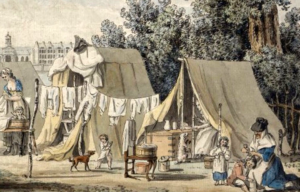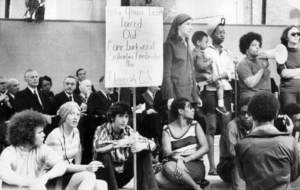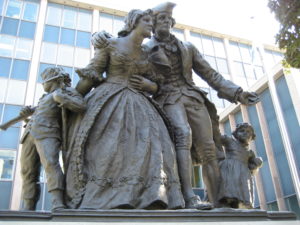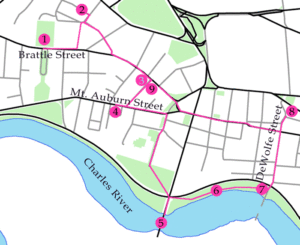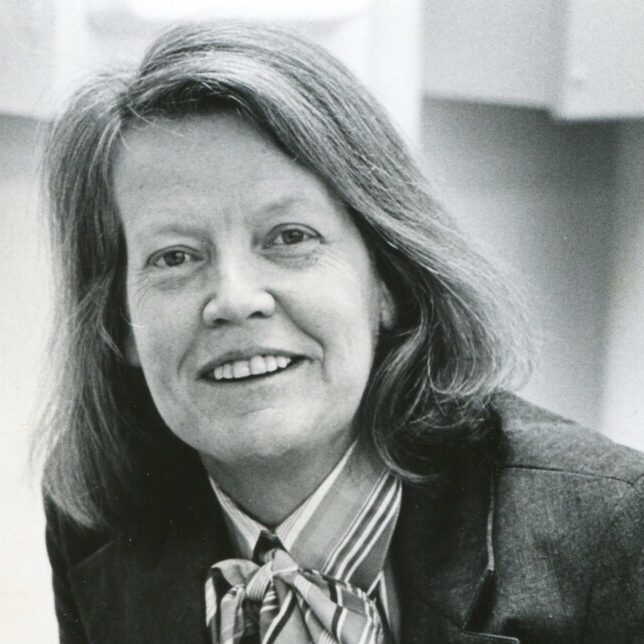
A people’s mayor — remembering Barbara Ackermann
By Veer Mudambi
July 10, 2020
Reproduced from Cambridge Chronicle & TAB with permission
Barbara Ackermann, the first woman to serve as mayor of Cambridge, embodied the term “social justice warrior” in its truest form. Her decades-long fight for social equality defined her life in public service and her reputation for never backing down truly qualified her for the title.
“She was indomitable,” said her daughter, Joan Ackermann, reached by telephone from her home in western Massachusetts. Nonetheless, she was “a savvy politician who could compromise but knew what she was aiming for and held to the path.”
Barbara Ackermann died July 4 at the age of 95. She was born in Stockholm on March 1, 1925, daughter of Benjamin Hulley of the U.S. Foreign Service and Joan Carrington. She grew up in France, the second of four siblings, and attended Smith College for a bachelor’s degree. In 1946, she married Paul Ackermann and moved to the Boston area. Her husband died in 2011.
A lifelong advocate for the disenfranchised, Ackermann was driven by an unwavering conviction in equality for all, a notion spanning her political career. She ran for a seat on the Cambridge School Committee in 1962, which she held until she was elected to the City Council in 1968. In 1973, she became the first woman mayor of Cambridge, and after completing her term, resumed her seat on the City Council until 1977.
Photo courtesy Cambridge Historical Commission
When attributing a reason for her mother’s success, Joan said it was because “she listened, especially to those with no voice” and “those were the people who always re-elected her [to City Council].”
One of the things she is most remembered for is her fervent support of healthcare for all. Ackermann was one of the initial champions of a single-payer system and was active as the chair of the Massachusetts nonprofit organization, Universal Health Care Education Fund (UHCEF), part of MASS-CARE. However, that was not all she wanted.
“She wanted to get rid of the insurance companies,” recalls Joan, likening her mother to former presidential candidate, Bernie Sanders. Healthcare is an example of how certain demographics are not equally served and Ackermann strove to change that. She would continue to be involved in improving healthcare quality for years after her time in politics, serving on the Ethics Committee of the Cambridge City Hospital.
As mayor, “she was not interested in the trappings of power,” even going so far as to eschew the traditional mayor’s car, preferring to use a bicycle to get around town. Power, as far as Ackermann was concerned, was only meant to better the lives of the people she served. In 1989, she published her memoir, ”‘You the Mayor?’ Education of a City Politician.”
Photo courtesy Boston Public Library
“She had no interest in high society at all – none,” said Joan. Ackermann’s ingrained Quaker values allowed her to see people for who they are, as “people without any definition,” and social status meant nothing to her. This carried over even to her funeral arrangements, as she specifically stated her desire to be buried in Cambridge Cemetery rather than Mount Auburn Cemetery, a traditional resting place of the Boston Brahmins and other city elite.
Ackermann was vociferous critic of the Vietnam War, famously stating that “our president is committing murder, arson and armed robbery against the will of our country.”
“Barbara paved the way for me to become mayor long before I was even born,” tweeted current Mayor Sumbul Siddiqui. “She was a champion for our most marginalized Cambridge residents and was a fierce advocate for justice. I’m thankful for her work in making Cambridge a better place to live for all.”
Ackermann’s crusade for social equity eventually led her to run for governor, competing with incumbent Michael Dukakis and Edward J. King for the democratic nomination in 1978. Public housing was a core issue for Ackermann, something she deemed missing from Dukakis’ platform. Following her philosophy that if someone wanted to see a change, they should do something about it themselves, she announced her own candidacy.
“It never really caught fire,” said Joan. While some of Dukakis’ supporters, including Dukakis himself, believed she split the vote and allowed King to win, the campaign may have had an overall positive effect in the long term. Dukakis went on to win a second term in 1983.
“Obviously, I wasn’t happy with the fact that she ran against me in the primary and contributed to my defeat, but I was a much better governor the second time around, and she can take some credit for that,” said Dukakis.
He went on to describe her as “a deeply committed citizen and public servant.”
“And you can’t do much better than that,” he said.
Photo courtesy Special Collections and University Archives, University of Massachusetts Amherst Libraries
Politically active to the end, Ackermann was thrilled about the election of Barack Obama. Joan recalled taking her mother to vote in the 2016 election, at the age of 91 — naturally it was for Hillary Clinton. By that point, however, Ackermann was in a state of decline which had mixed results, but Joan believes it shielded her mother from awareness of the country’s current political turmoil.
“It would have devastated her the way it is devastating so many of us. I’m just happy that [the current administration] never entered her consciousness,” Joan said.
She leaves behind a brother, two children and a grandchild.
Veer Mudambi is a freelance journalist. You can read more about him here.

